Case of Dr. Eytan Raz and Dr. Koto Ishida — this one is about imaginative thinking, reinforced by knowledge of anatomy, to quickly establish diagnosis and offer thrombectomy
Kissing Sofias technique. Well, its more like a 69 really
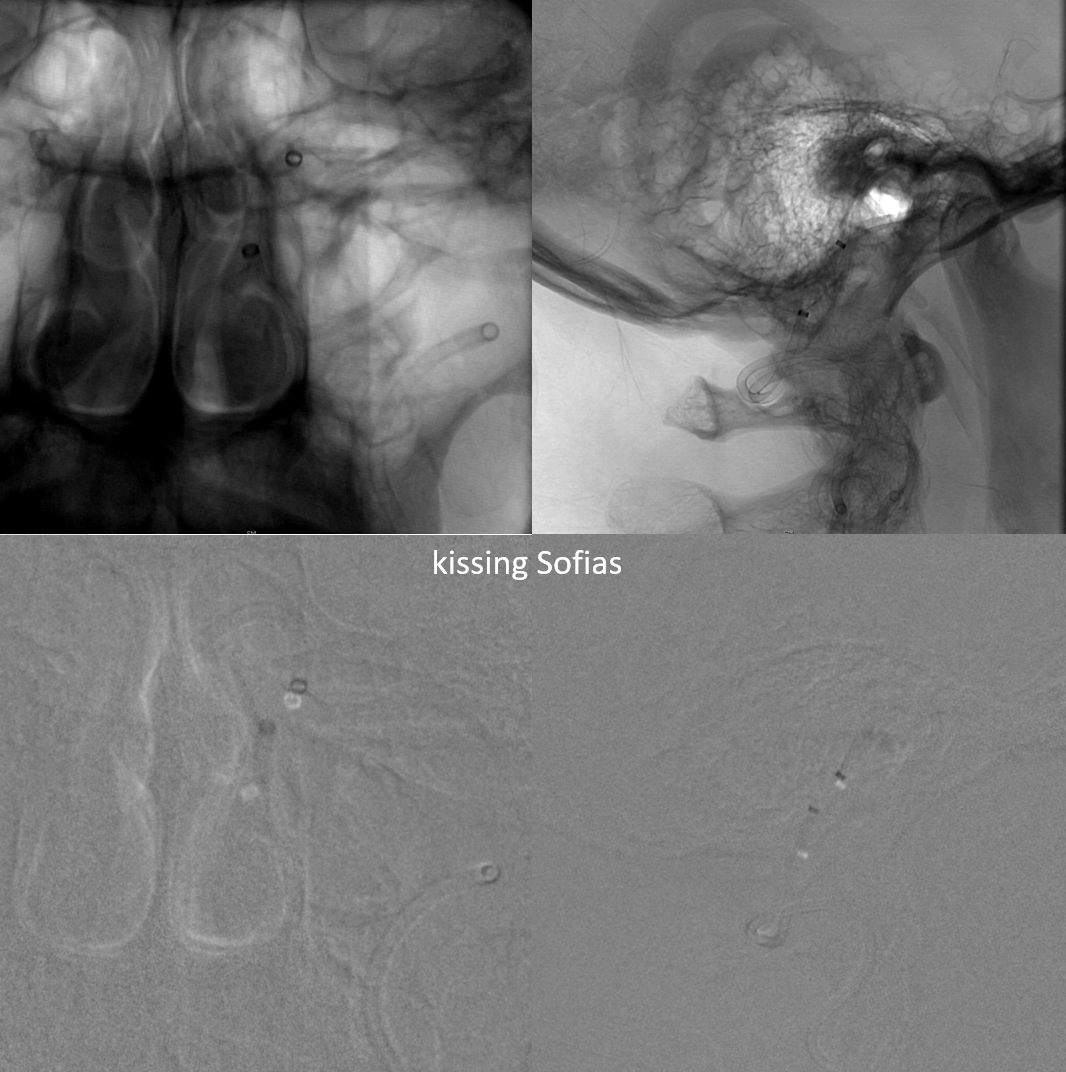
Presentation is a partial Wallenberg
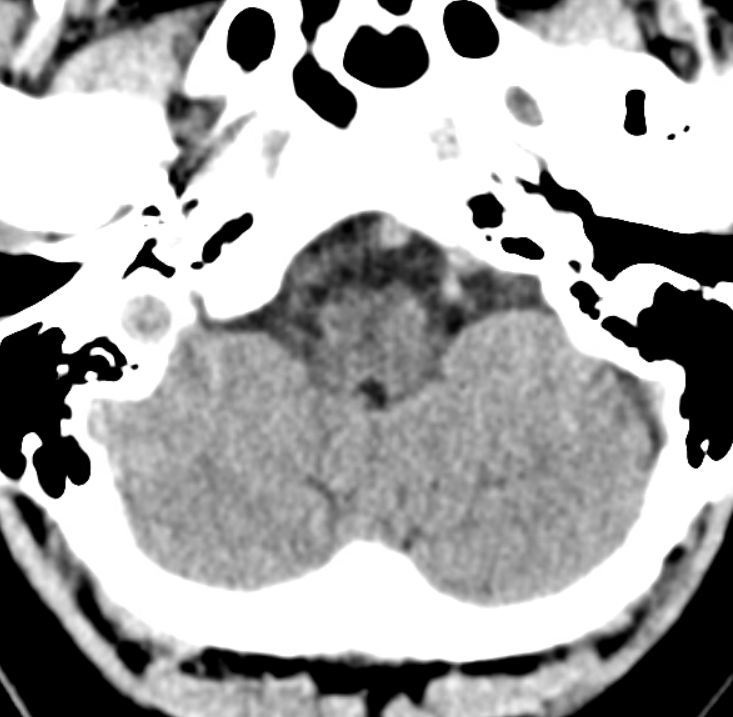
The left intradural vert is occluded. Left PICA is extradural origin — get it? Important?
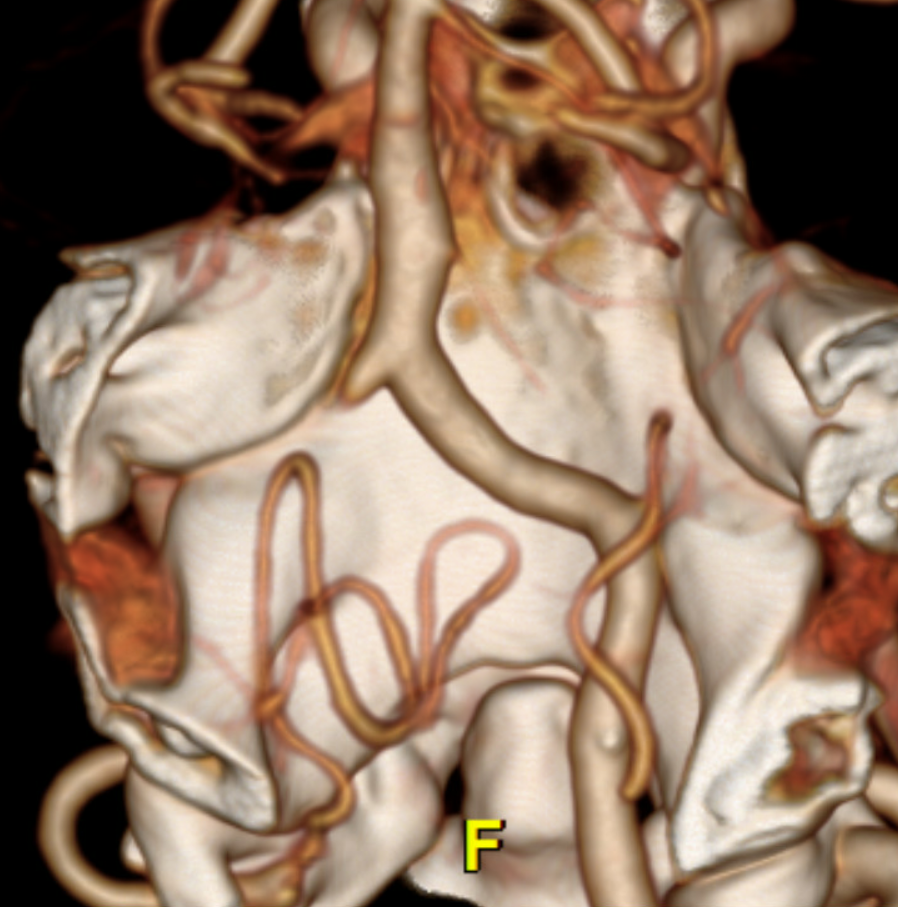
So how to analyze this? This is a classic low NIHSS posterior fossa stroke. Putting this together takes anatomy. An extradural origin PICA will never — really never — supply the lateral medulla. This will be done by lateral medullary perforators arising directly from the intradural vert . How do we know the vert occlusion is acute? Precisely because the patient is symptomatic in a way that corresponds to anatomy. Its important to have the courage of one’s convictions and to advocate for thrombectomy in a seemingly “soft” setting like this one.
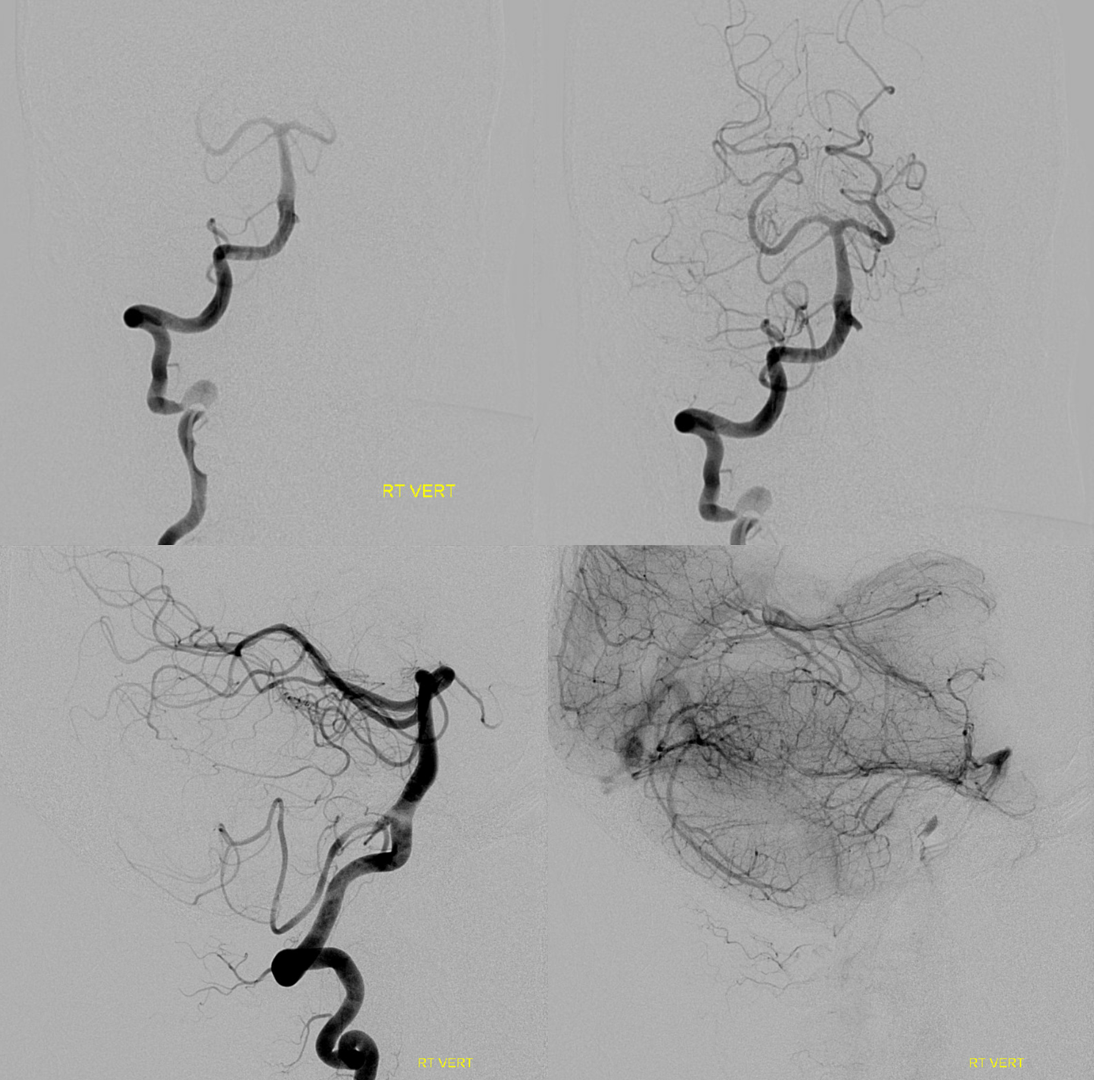
So why go from above? To protect against distal embolization. Is it likely? Not uncommon. Can it be bad — of course. Plus, the right vert is bigger and straighter.
Sofia 5 From above
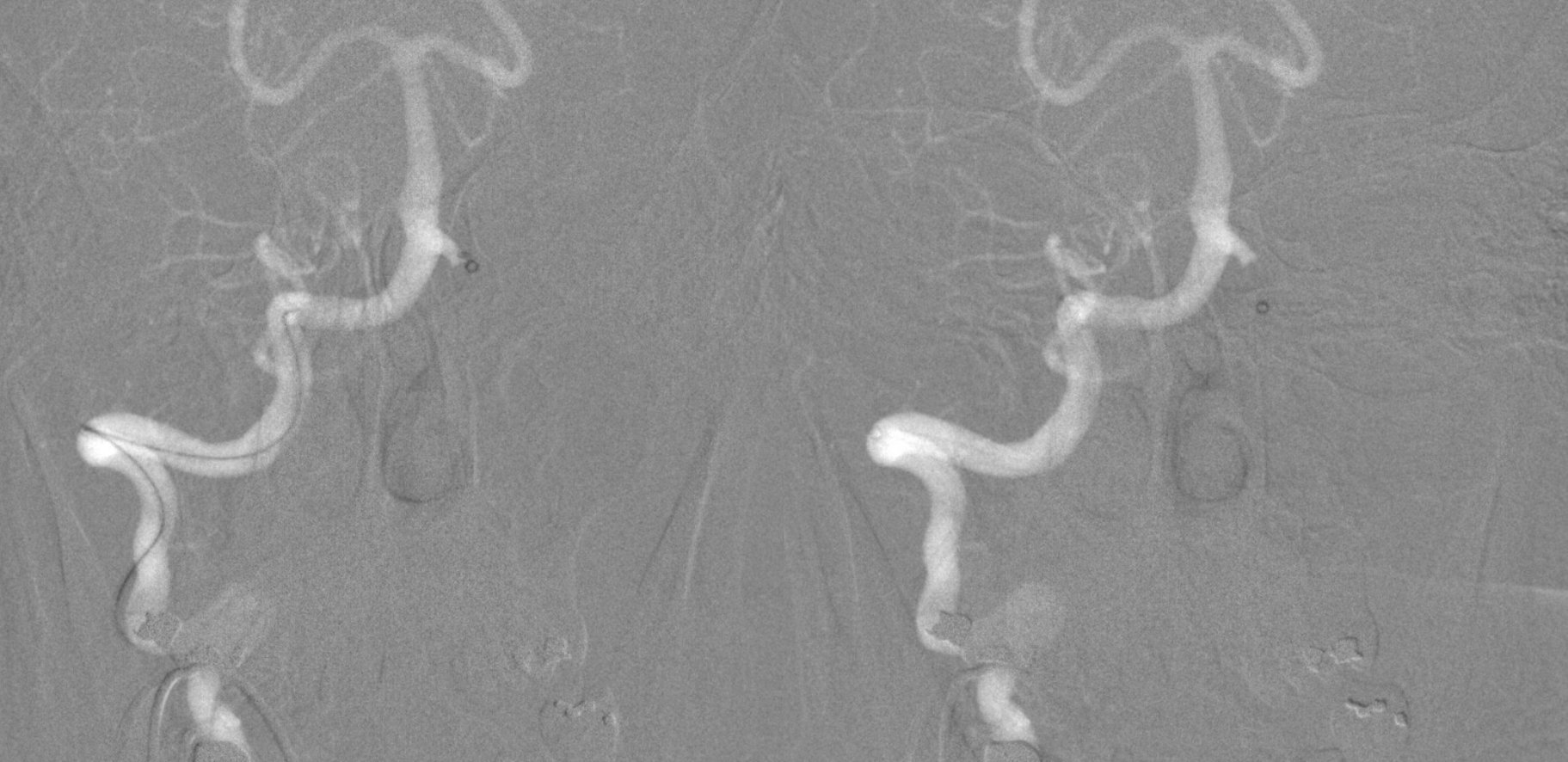
Post aspiration — still occluded — but do u see the medullary perforators now?
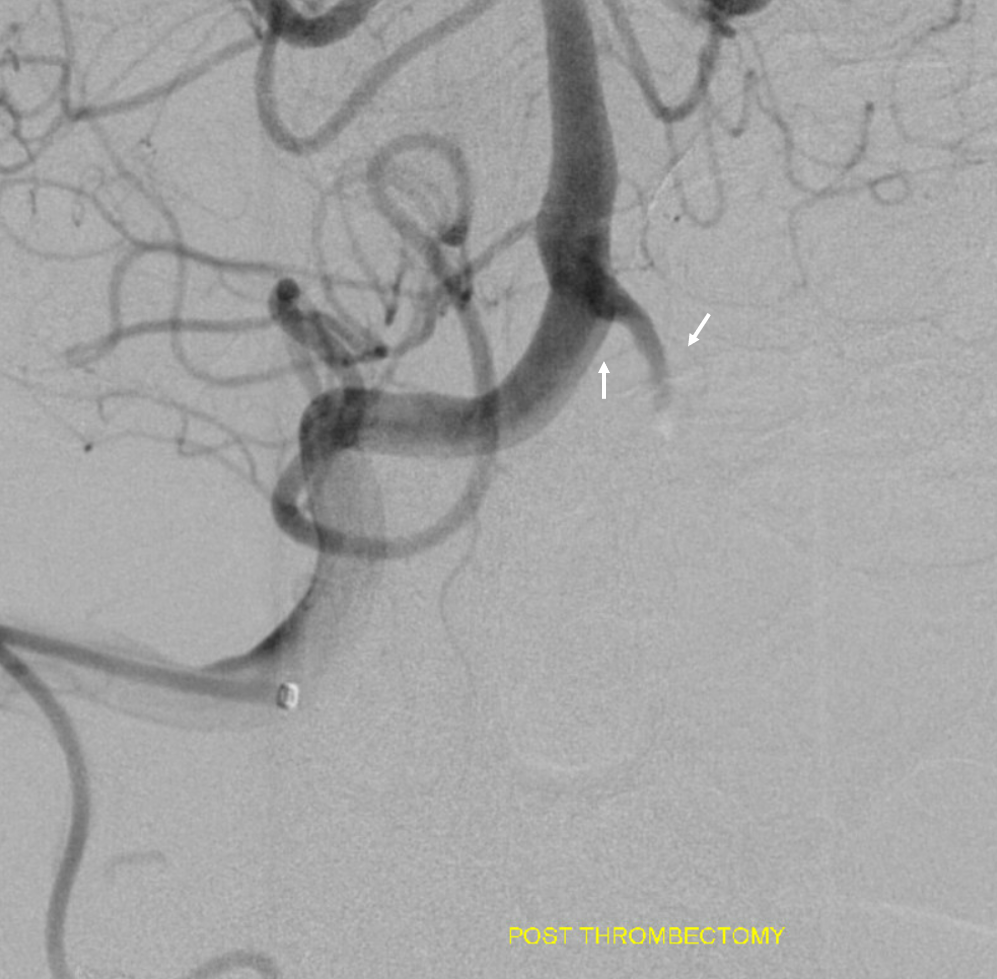
Now from the left vert — its smaller, with a serious proximal loop. Nevertheless we can have a good position with a second Sofia 5
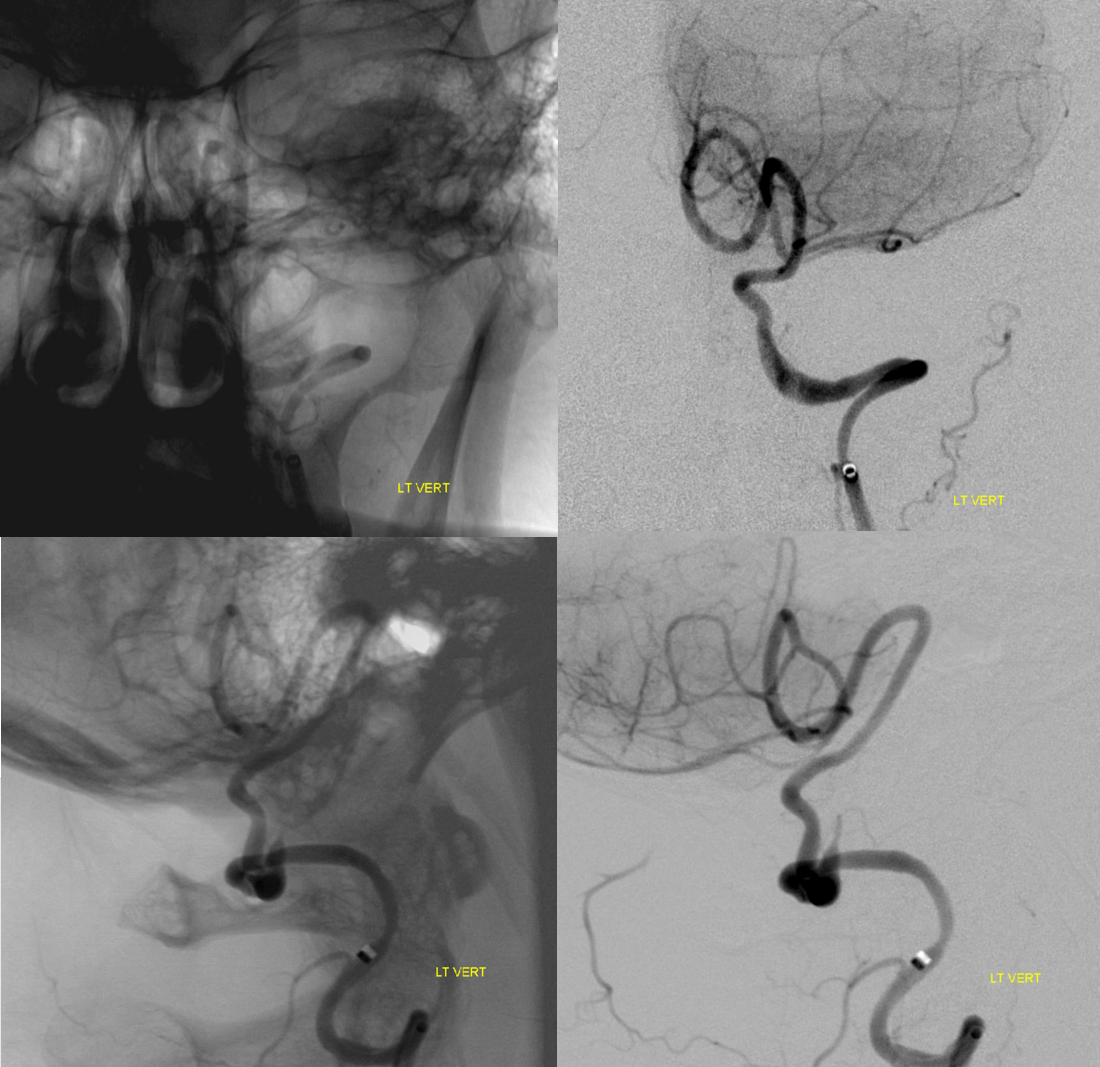
Now for the two Sofias — the upper one is more for distal protection at this point. It is the lower one that we advance — bottom images

Post lower Sofia aspiration — the lower medullary vessels are open
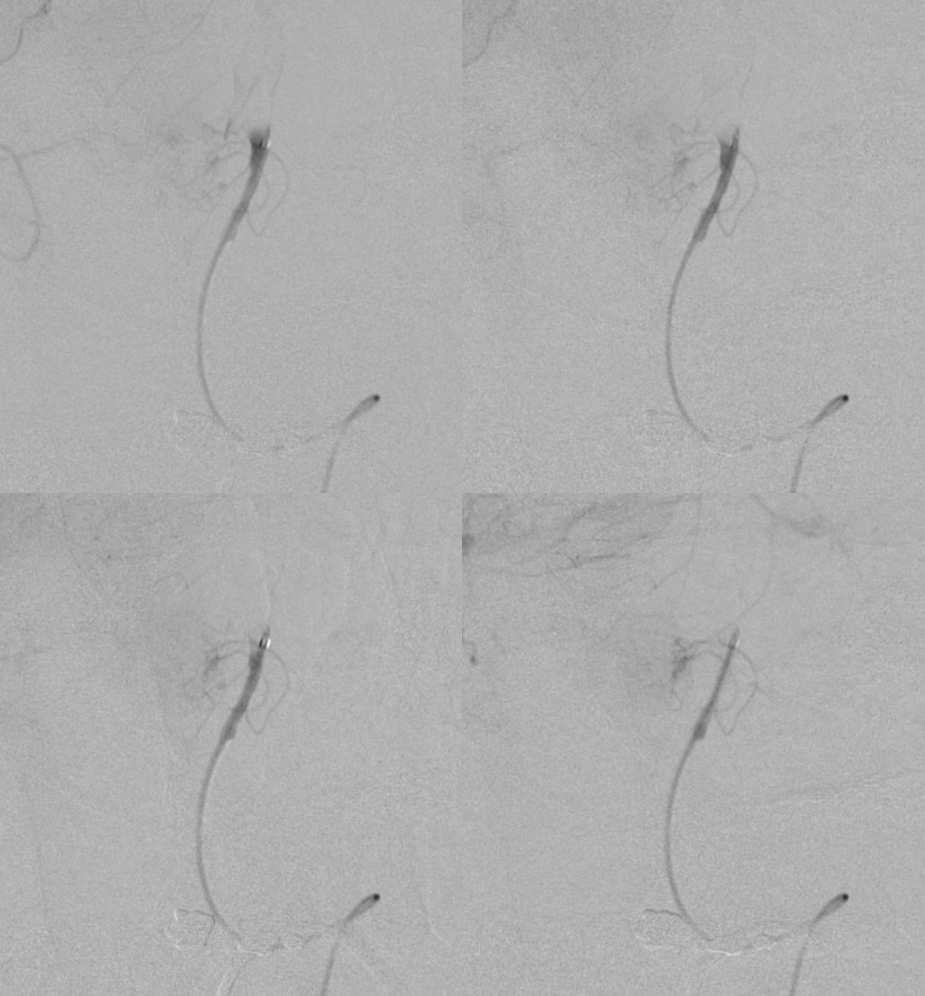
Laterals
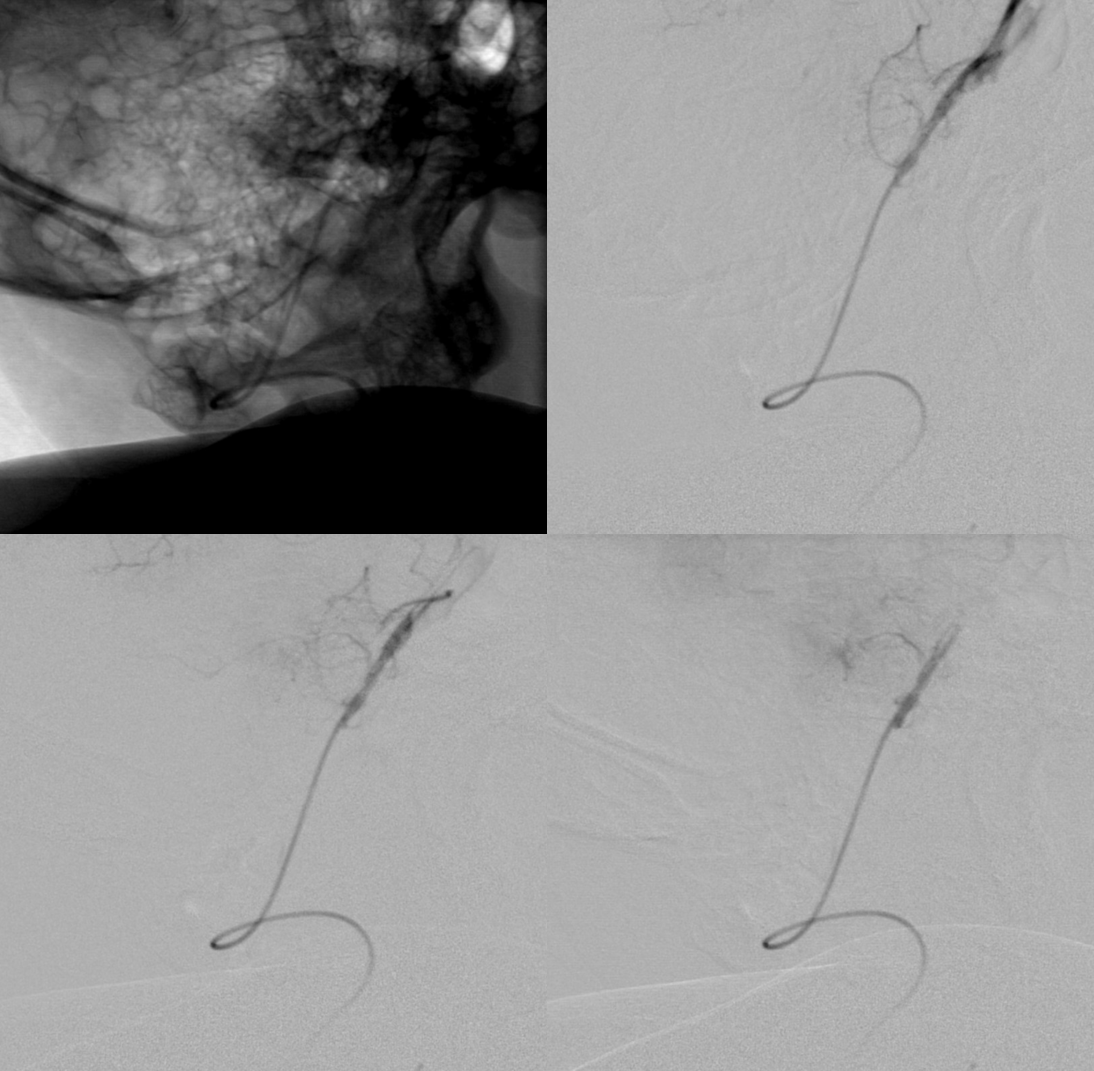
Final post
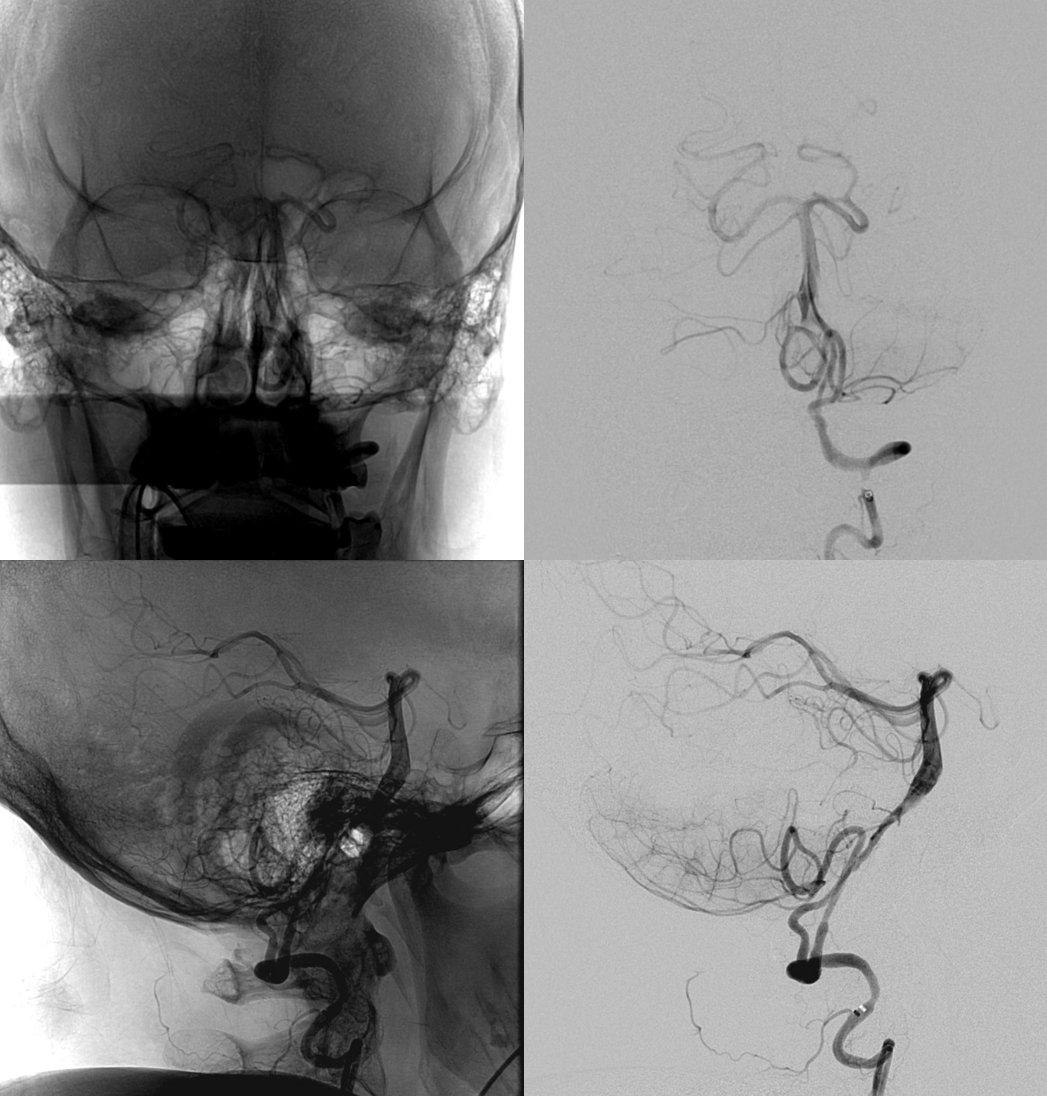
Cervical post — see left vert origin with ghost of straightened roadmap before left Sofia is pulled back? Getting up there was harder than it looks
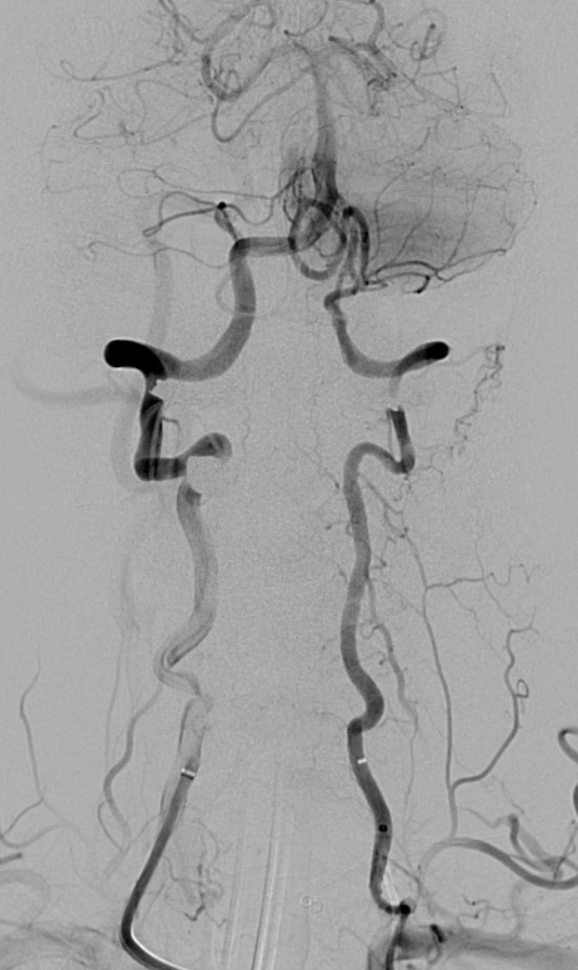
Mild diffusion restriction. Clinically at normal baseline
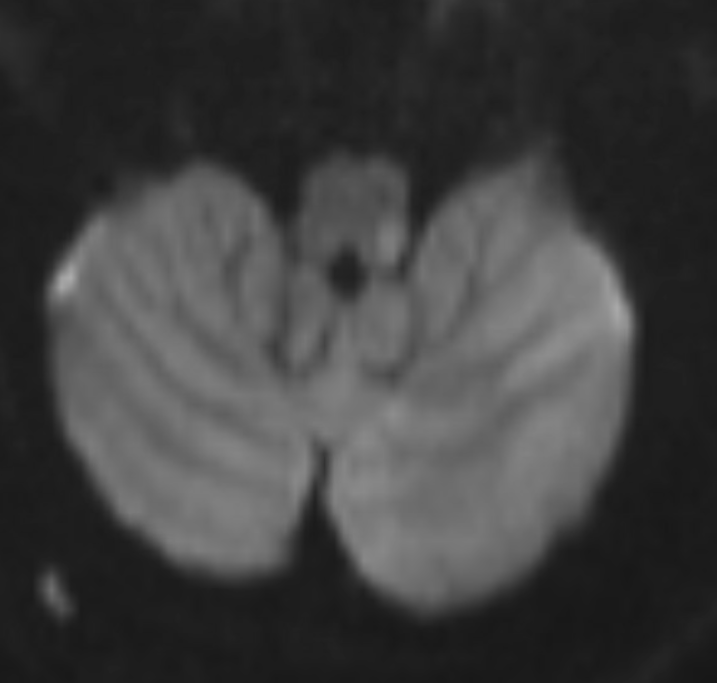
VR MRA image
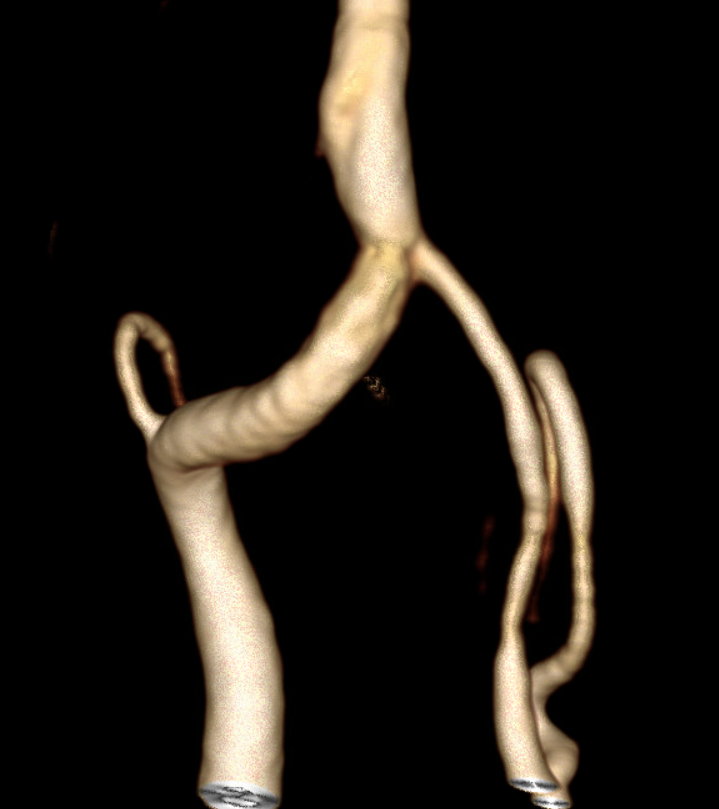
MRI post intervention. Was it embolic? Athero? Dissection?
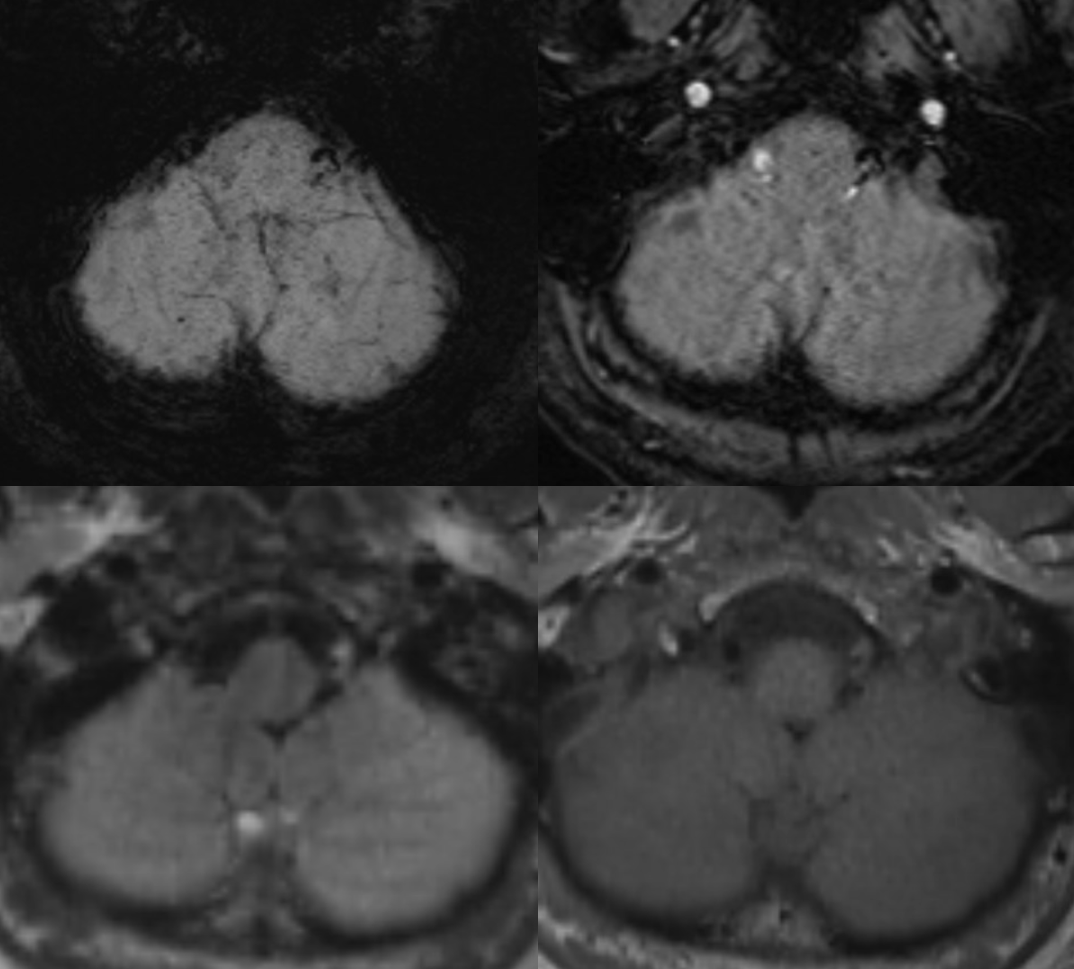
Gotta look at everything. How about this TMJ MRI a few years prior? Dashed arrows — PICA. Solid arrows — vert . Ball arrow — looks like the offending medullary perforator possibly.
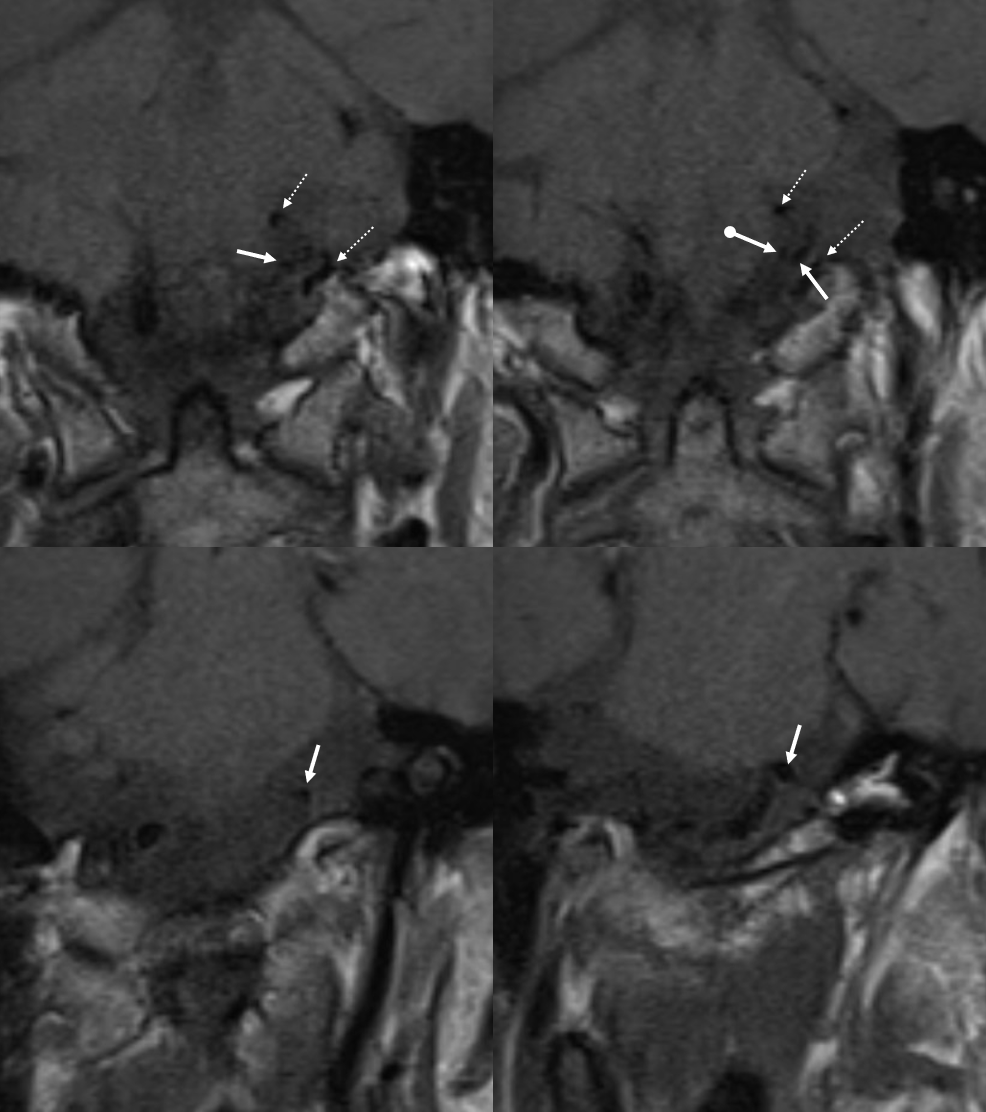
Questions? Comments? Got any more examples of this? Send us for an expedited peer-reviewed process right here.
